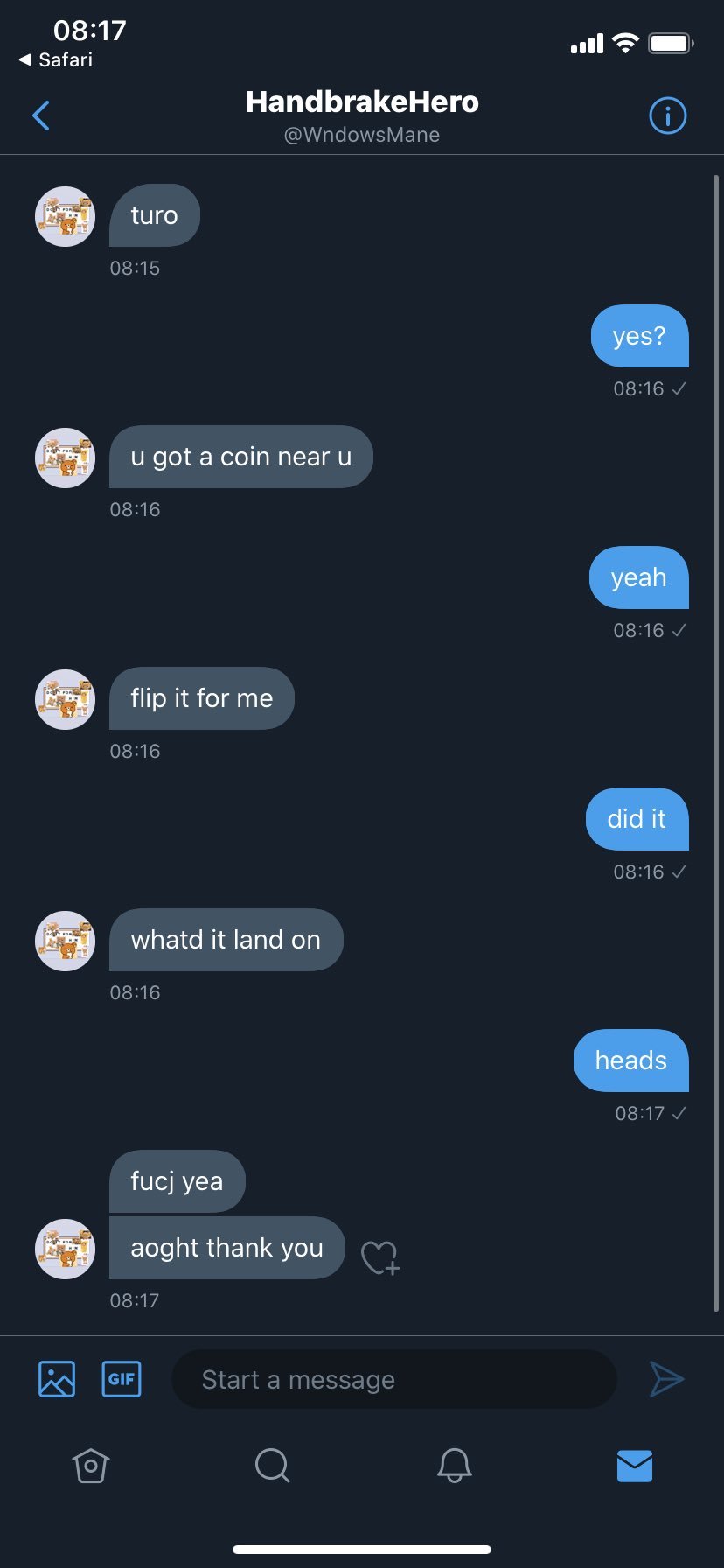Goldieslearning - Big Plans, Baby!



More Posts from Goldieslearning and Others

Hot girls get degrees 📜💗🧠🎀💅🏾






01.10.2022 It is October once more and the dark academia study aesthetic vibes are here.
Right now, I’m sifting through 50+ applications for a new entry-level position. Here’s some advice from the person who will actually be looking at your CV/resume and cover letter:
‘You must include a cover letter’ does not mean ‘write a single line about why you want this position’. If you can’t be bothered to write at least one actual paragraphs about why you want this job, I can’t be bothered to read your CV.
Don’t bother including a list of your interests if all you can think of is ‘socialising with friends’ and ‘listening to music’. Everyone likes those things. Unless you can explain why the stuff you do enriches you as a person and a candidate (e.g. playing an instrument or a sport shows dedication and discipline) then I honestly don’t care how you spend your time. I won’t be looking at your CV thinking ‘huh, they haven’t included their interests, they must have none’, I’m just looking for what you have included.
Even if you apply online, I can see the filename you used for your CV. Filenames that don’t include YOUR name are annoying. Filenames like ‘CV - media’ tell me that you’ve got several CVs you send off depending on the kind of job advertised and that you probably didn’t tailor it for this position. ‘[Full name] CV’ is best.
USE. A. PDF. All the meta information, including how long you worked on it, when you created it, times, etc, is right there in a Word doc. PDFs are far more professional looking and clean and mean that I can’t make any (unconscious or not) decisions about you based on information about the file.
I don’t care what the duties in your previous unrelated jobs were unless you can tell me why they’re useful to this job. If you worked in a shop, and you’re applying for an office job which involves talking to lots of people, don’t give me a list of stuff you did, write a sentence about how much you enjoyed working in a team to help everyone you interacted with and did your best to make them leave the shop with a smile. I want to know what makes you happy in a job, because I want you to be happy within the job I’m advertising.
Does the application pack say who you’ll be reporting to? Can you find their name on the company website? Address your application to them. It’s super easy and shows that you give enough of a shit to google something. 95% of people don’t do this.
Tell me who you are. Tell me what makes you want to get up in the morning and go to work and feel fulfilled. Tell me what you’re looking for, not just what you think I’m looking for.
I will skim your CV. If you have a bunch of bullet points, make every one of them count. Make the first one the best one. If it’s not interesting to you, it’s probably not interesting to me. I’m overworked and tired. Make my job easy.
“I work well in a team or individually” okay cool, you and everyone else. If the job means you’ll be part of a big team, talk about how much you love teamwork and how collaborating with people is the best way to solve problems. If the job requires lots of independence, talk about how you are great at taking direction and running with it, and how you have the confidence to follow your own ideas and seek out the insight of others when necessary. I am profoundly uninterested in cookie-cutter statements. I want to know how you actually work, not how a teacher once told you you should work.
For an entry-level role, tell me how you’re looking forward to growing and developing and learning as much as you can. I will hire genuine enthusiasm and drive over cherry-picked skills any day. You can teach someone to use Excel, but you can’t teach someone to give a shit. It makes a real difference.
This is my advice for small, independent orgs like charities, etc. We usually don’t go through agencies, and the person reading through the applications is usually the person who will manage you, so it helps if you can give them a real sense of who you are and how you’ll grab hold of that entry level position and give it all you’ve got. This stuff might not apply to big companies with actual HR departments - it’s up to you to figure out the culture and what they’re looking for and mirror it. Do they use buzzwords? Use the same buzzwords! Do they write in a friendly, informal way? Do the same! And remember, 95% of job hunting (beyond who you know and flat-out nepotism, ugh) is luck. If you keep getting rejected, it’s not because you suck. You might just need a different approach, or it might just take the right pair of eyes landing on your CV.
And if you get rejected, it’s worthwhile asking why. You’ve already been rejected, the worst has already happened, there’s really nothing bad that can come out of you asking them for some constructive feedback (politely, informally, “if it isn’t too much trouble”). Pretty much all of us have been hopeless jobseekers at one point or another. We know it’s shitty and hard and soul-crushing. Friendliness goes a long way. Even if it’s just one line like “your cover letter wasn’t inspiring" at least you know where to start.
And seriously, if you have any friends that do any kind of hiring or have any involvement with that side of things, ask them to look at your CV with a big red pen and brutal honesty. I do this all the time, and the most important thing I do is making it so their CV doesn’t read exactly like that of every other person who took the same ‘how-to-get-a-job’ class in school. If your CV has a paragraph that starts with something like ‘I am a highly motivated and punctual individual who–’ then oh my god I AM ALREADY ASLEEP.
“Why do we persist in thinking about gender differences? I think it’s telling to think about who benefits, when we think about why this research is even being done. Why is anyone trying to prove that there are innate differences between men and women in intelligence, scientific ability, competitiveness, or any other traits that seem to confer high status in society? One general reason to cling to the idea of innate ability is to give ourselves an excuse for not being good at something. If I claim that I just have no natural aptitude for sports, that gives me an excuse for being very, very bad at sports. Conversely, when people declare that I am very talented at the piano, that negates the thousands of hours of practice I have put in. People can declare themselves to be a right-brained, “creative” person, and use that as an excuse for being disorganised. They can boast of being a left-brained, “logical” person, and use that as an excuse for being insensitive. (This is in spite of the fact that the left-/right-brain theory has been largely debunked.) The more invidious reason to claim that people are born with certain traits is to avoid having to help people do any better. This is a way of not having to address our prejudices. If we can somehow argue that women are innately less intelligent than men, then we won’t have to address issues of inequality in education, science, business, politics, and every echelon of power. If “innate” biological differences are found, they become fodder for people who seek a pseudo-rational basis to maintain structures that discriminate against women.”
— Eugenia Cheng, x + y: A Mathematician’s Manifesto for Rethinking Gender


https://www.instagram.com/p/CjYTI7EO67v/
-
 thebardslastnote liked this · 1 month ago
thebardslastnote liked this · 1 month ago -
 mysterians reblogged this · 2 months ago
mysterians reblogged this · 2 months ago -
 kingkhione reblogged this · 3 months ago
kingkhione reblogged this · 3 months ago -
 stuffnrandomshi reblogged this · 3 months ago
stuffnrandomshi reblogged this · 3 months ago -
 julem liked this · 3 months ago
julem liked this · 3 months ago -
 crowvus reblogged this · 4 months ago
crowvus reblogged this · 4 months ago -
 bugsupport liked this · 4 months ago
bugsupport liked this · 4 months ago -
 purpleminte liked this · 6 months ago
purpleminte liked this · 6 months ago -
 bridgetteandfriends liked this · 6 months ago
bridgetteandfriends liked this · 6 months ago -
 twinworm liked this · 6 months ago
twinworm liked this · 6 months ago -
 galuxie liked this · 7 months ago
galuxie liked this · 7 months ago -
 downtilts liked this · 9 months ago
downtilts liked this · 9 months ago -
 allmindlost liked this · 9 months ago
allmindlost liked this · 9 months ago -
 witchbabybat reblogged this · 9 months ago
witchbabybat reblogged this · 9 months ago -
 steven-cartoons liked this · 11 months ago
steven-cartoons liked this · 11 months ago -
 finemarble reblogged this · 1 year ago
finemarble reblogged this · 1 year ago -
 ohlookitsakiralupin liked this · 1 year ago
ohlookitsakiralupin liked this · 1 year ago -
 the-astral-idiot reblogged this · 1 year ago
the-astral-idiot reblogged this · 1 year ago -
 drac-onion reblogged this · 1 year ago
drac-onion reblogged this · 1 year ago -
 birdy-reblog reblogged this · 1 year ago
birdy-reblog reblogged this · 1 year ago -
 birdy-reblog liked this · 1 year ago
birdy-reblog liked this · 1 year ago -
 desperatevenom liked this · 1 year ago
desperatevenom liked this · 1 year ago -
 dumbestbitchyoulleverknow liked this · 1 year ago
dumbestbitchyoulleverknow liked this · 1 year ago -
 callmey1 reblogged this · 1 year ago
callmey1 reblogged this · 1 year ago -
 callmey-1 liked this · 1 year ago
callmey-1 liked this · 1 year ago -
 drac-onion liked this · 1 year ago
drac-onion liked this · 1 year ago -
 the-astral-idiot reblogged this · 1 year ago
the-astral-idiot reblogged this · 1 year ago -
 the-astral-idiot liked this · 1 year ago
the-astral-idiot liked this · 1 year ago -
 mausuwinasa liked this · 1 year ago
mausuwinasa liked this · 1 year ago -
 lyreb1rd reblogged this · 1 year ago
lyreb1rd reblogged this · 1 year ago -
 morguezsz liked this · 1 year ago
morguezsz liked this · 1 year ago -
 edraculation liked this · 1 year ago
edraculation liked this · 1 year ago -
 eldritch-posts liked this · 1 year ago
eldritch-posts liked this · 1 year ago -
 digirainebow liked this · 1 year ago
digirainebow liked this · 1 year ago -
 trashshouldnt reblogged this · 1 year ago
trashshouldnt reblogged this · 1 year ago -
 very-uncorrect reblogged this · 1 year ago
very-uncorrect reblogged this · 1 year ago -
 tastypizza49 reblogged this · 1 year ago
tastypizza49 reblogged this · 1 year ago -
 red-signal reblogged this · 1 year ago
red-signal reblogged this · 1 year ago -
 its-a-servant-to-an-angel reblogged this · 1 year ago
its-a-servant-to-an-angel reblogged this · 1 year ago -
 differentsublimephantom reblogged this · 1 year ago
differentsublimephantom reblogged this · 1 year ago -
 differentsublimephantom liked this · 1 year ago
differentsublimephantom liked this · 1 year ago -
 sylcries liked this · 1 year ago
sylcries liked this · 1 year ago -
 juniebugsss reblogged this · 1 year ago
juniebugsss reblogged this · 1 year ago -
 oldmanontumbler liked this · 1 year ago
oldmanontumbler liked this · 1 year ago -
 schoolbookprojectthingathang liked this · 1 year ago
schoolbookprojectthingathang liked this · 1 year ago -
 tbhcreacher liked this · 1 year ago
tbhcreacher liked this · 1 year ago -
 wisetacostrawberry liked this · 1 year ago
wisetacostrawberry liked this · 1 year ago -
 bunktondahead reblogged this · 1 year ago
bunktondahead reblogged this · 1 year ago

